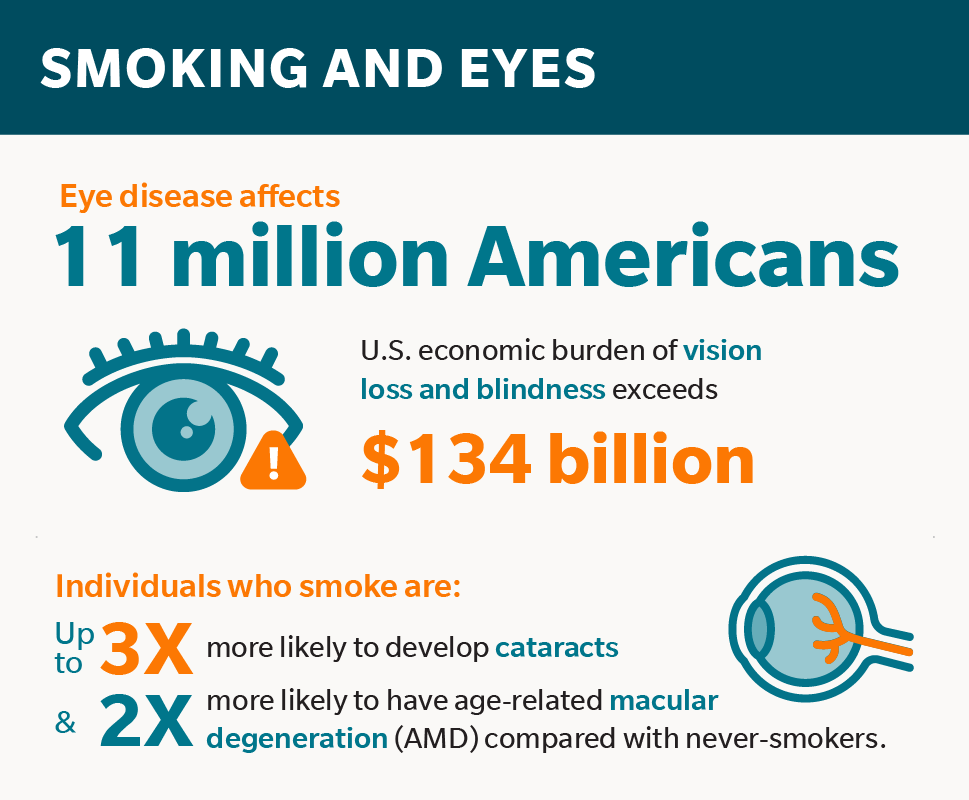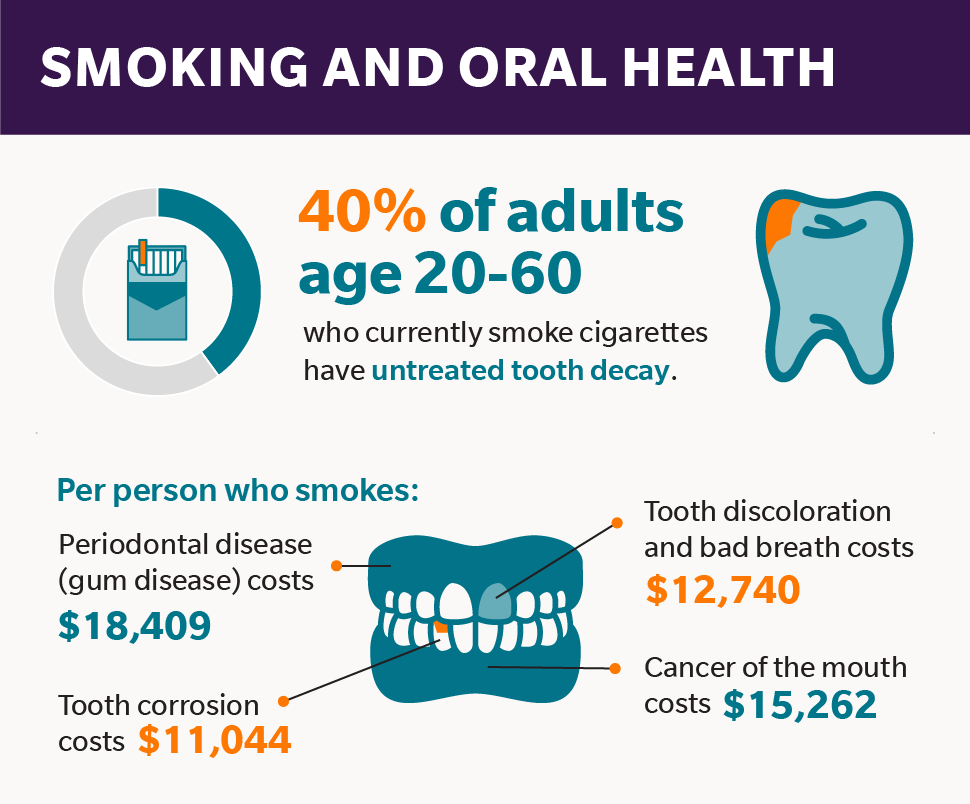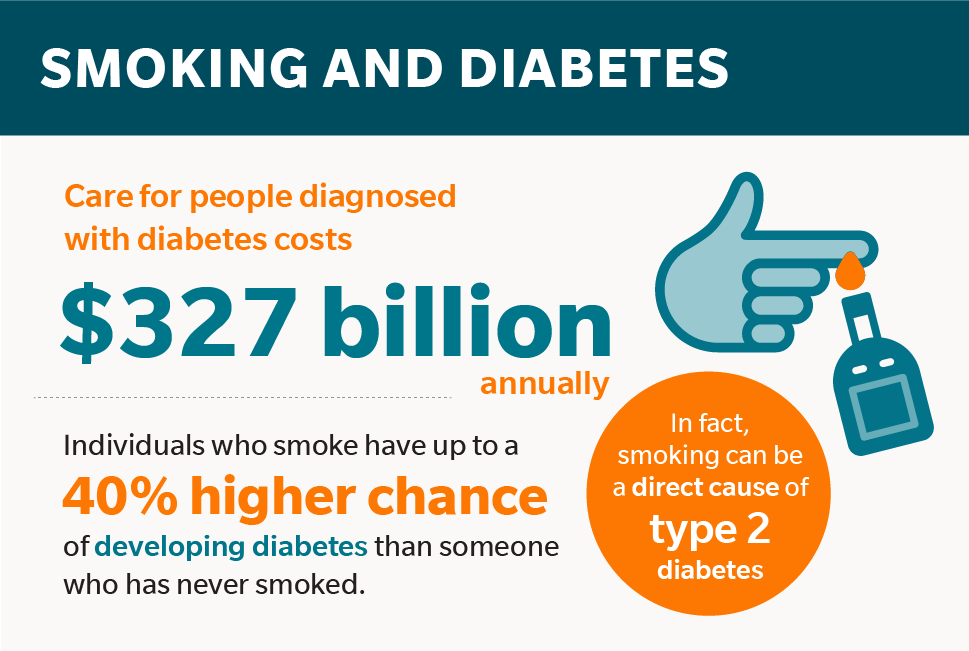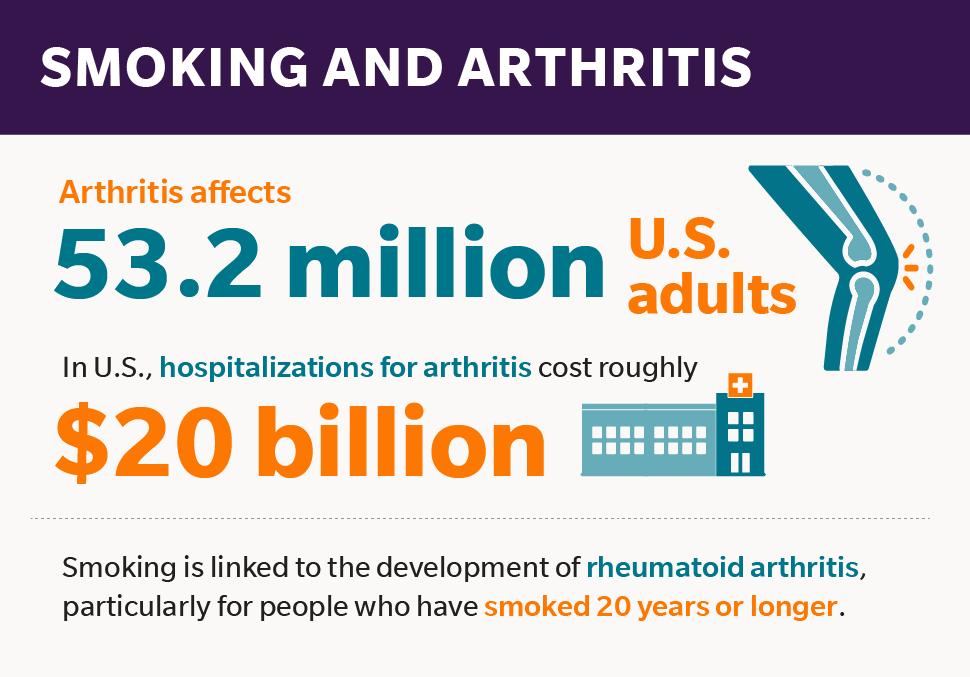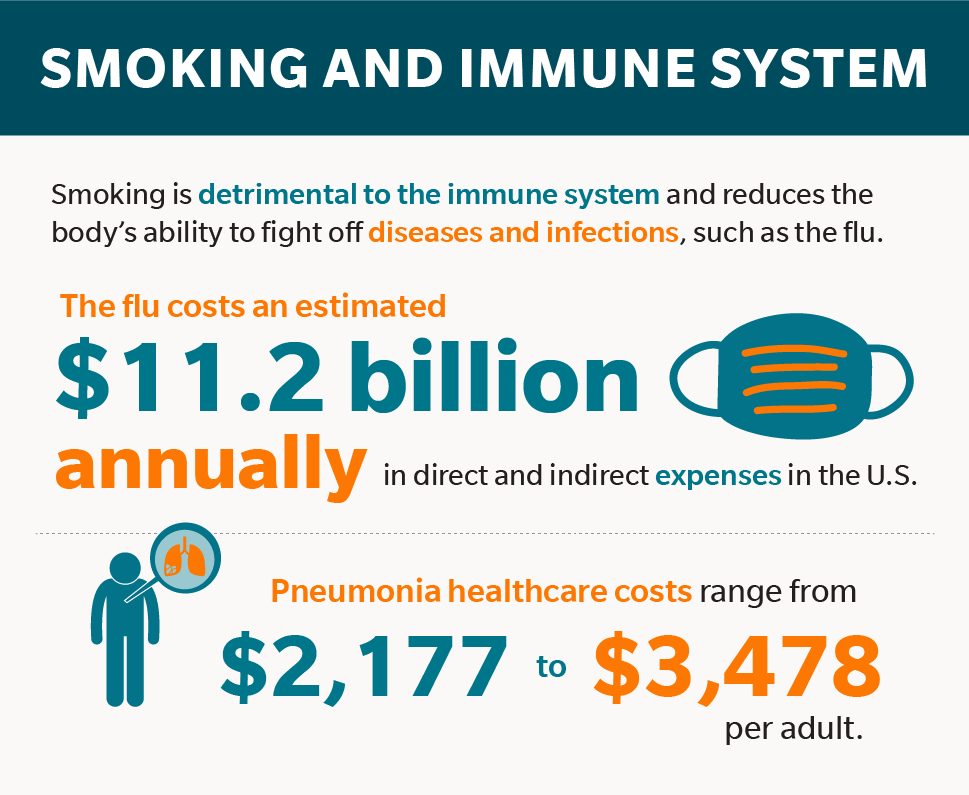Smoking is expensive and contributes to a wide range of costly diseases, including some that may not be on your radar.
You likely know the most expensive medical conditions associated with smoking—chronic illnesses like cancer and heart disease. These conditions cost over $600 billion each year and make up a large percentage of health plan spending.
However, there are less well-known cost drivers from smoking that also pack a wallop.
One critical way for health plans to curb spending associated with these conditions is to effectively engage individuals in quitting tobacco.
See 5 sneaky drivers of healthcare costs associated with smoking—and the benefits of helping members quit—that you need to know.
Smoking and eyes
Eye disease (specifically, age-related macular degeneration) is the leading cause of vision loss for older adults and affects 11 million Americans. The total U.S. economic burden of vision loss and blindness exceeds $134 billion.
Several factors, such as age, can put people at risk for eye disease, cataracts, and macular degeneration.
However, individuals who smoke are:
- Up to 3 times more likely to develop cataracts and up to 2 times more likely to have age-related macular degeneration (AMD) compared with never-smokers.
- More likely to develop AMD 5 years earlier than those who have never smoked.
Quitting smoking can lower the risk for both AMD and cataracts. And for those with AMD, quitting may slow the disease.
Smoking and oral health
Cigarettes and other forms of tobacco can cause oral cancer, gum disease, tooth loss, and other oral problems. Untreated tooth decay, for example, is higher in people who smoke cigarettes. Over 40% of adults aged 20 to 64 who currently smoke cigarettes have untreated tooth decay.
The total costs for treating smoking-related oral diseases add up quickly.
- Periodontal disease (gum disease) costs $18,409
- Cancer of the mouth costs $15,262
- Tooth discoloration and bad breath cost $12,740
- Tooth corrosion costs $11,044
The good news: those who quit smoking can significantly lower their risk of developing oral cancer and periodontal disease.
Smoking and diabetes
Care for people diagnosed with diabetes accounts for 1 in 4 healthcare dollars spent in the U.S., amounting to a total estimated annual cost of $327 billion.
Individuals who smoke have up to a 40% higher chance of developing diabetes than someone who has never smoked. In fact, smoking can be a direct cause of type 2 diabetes, and the more cigarettes an individual smokes, the higher their risk.
For those who have type 1 diabetes, smoking can make the condition harder to control. That’s because smoking can change how the body processes and regulates sugar, making it harder to control blood sugar levels.
Quitting smoking not only reduces the risk of developing the type 2 diabetes but also substantially reduces the risk of diabetes-related complications.
Smoking and arthritis
Arthritis affects 53.2 million U.S. adults and is a leading cause of chronic pain.
In U.S., hospitalizations for arthritis are one of the most expensive conditions treated in hospitals, costing roughly $20 billion.
Smoking is linked to the development of rheumatoid arthritis, particularly for people who have smoked 20 years or longer.
Individuals with rheumatoid arthritis who smoke have an increased risk of greater disease severity and may be less likely to experience remission. Smoking can also decrease the effectiveness of some drugs used to treat rheumatoid arthritis.
Quitting smoking can reduce the risk of developing arthritis. Quitting can also delay or even prevent the most severe form of arthritis.
Smoking and immune system
Smoking is detrimental to the immune system and reduces the body’s ability to fight off diseases and infections. We saw this most vividly during the COVID-19 pandemic. Being a current or former cigarette smoker increased the likelihood of getting very sick from COVID-19.
Smoking can also disrupt the immune system’s balance, which increases the likelihood of developing immune and autoimmune disorders.
Several toxic chemicals present in cigarettes, such as nicotine, formaldehyde, ammonia, carbon monoxide, benzopyrenes, tar, acetone, hydroxyquinone, cadmium, and nitrogen oxides, have pro-inflammatory and immunosuppressive effects. These can lead to a higher risk of contracting infections like pneumonia and the flu.
The flu alone results in an estimated annual cost of $11.2 billion in direct and indirect expenses in the U.S., and pneumonia healthcare costs range from $2,177 to $3,478 per adult.
Quitting smoking has numerous benefits, including the restoration of the immune system’s normal function to mount fast responses to bacteria and viruses.
Gain strategic support to engage more quitters
Together, we can reduce healthcare costs by engaging more members in living tobacco free.
Built with Mayo Clinic, EX Program by Truth Initiative is your best strategic partner to end smoking, vaping, and nicotine use. As a client, you gain:
- Anytime access to a real-time dashboard to track enrollment, engagement, abstinence, and more.
- A customized annual promotional plan for both health plan members and providers, including sending emails to members at no additional cost.
- A proven effective digital quit tobacco program developed with Mayo Clinic.
See more benefits of using EX Program to help end tobacco use among members on our Health Plan Solution page. Or see an instant demo by clicking here.


